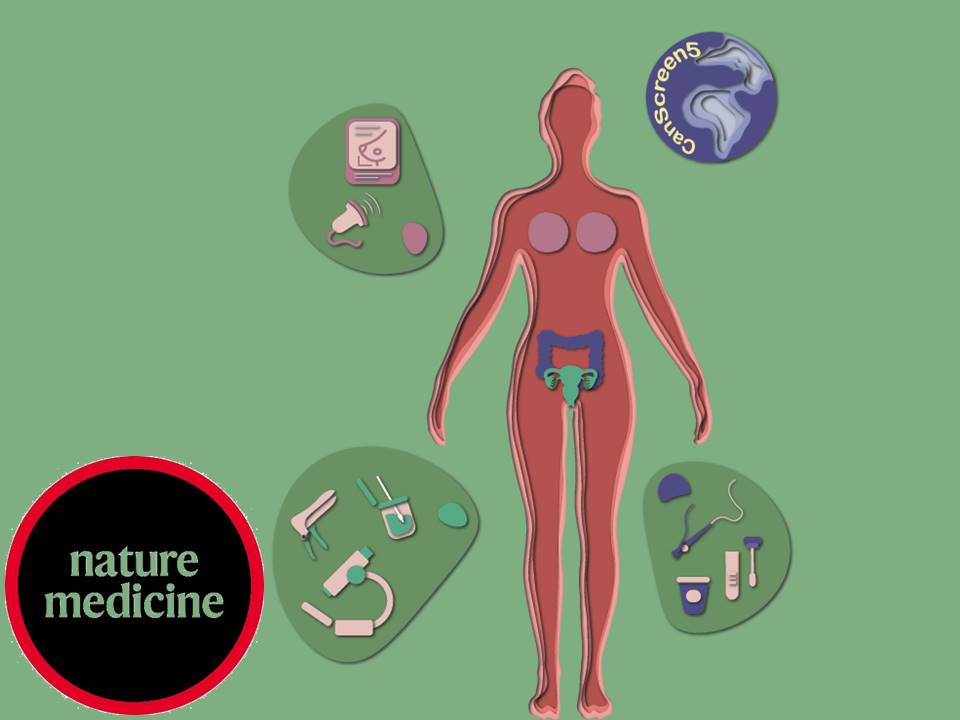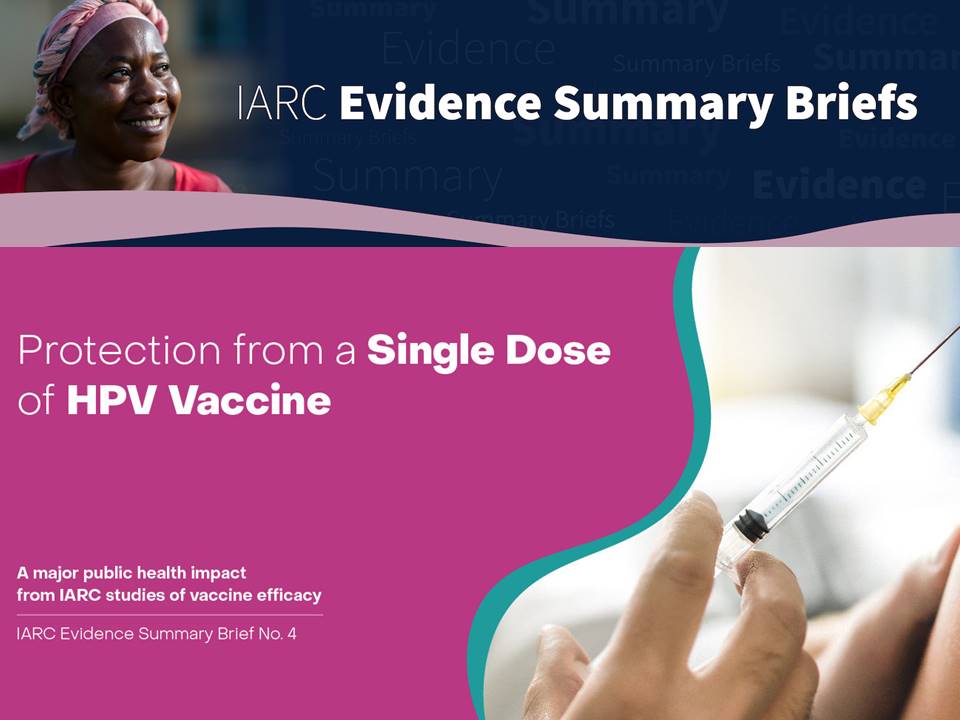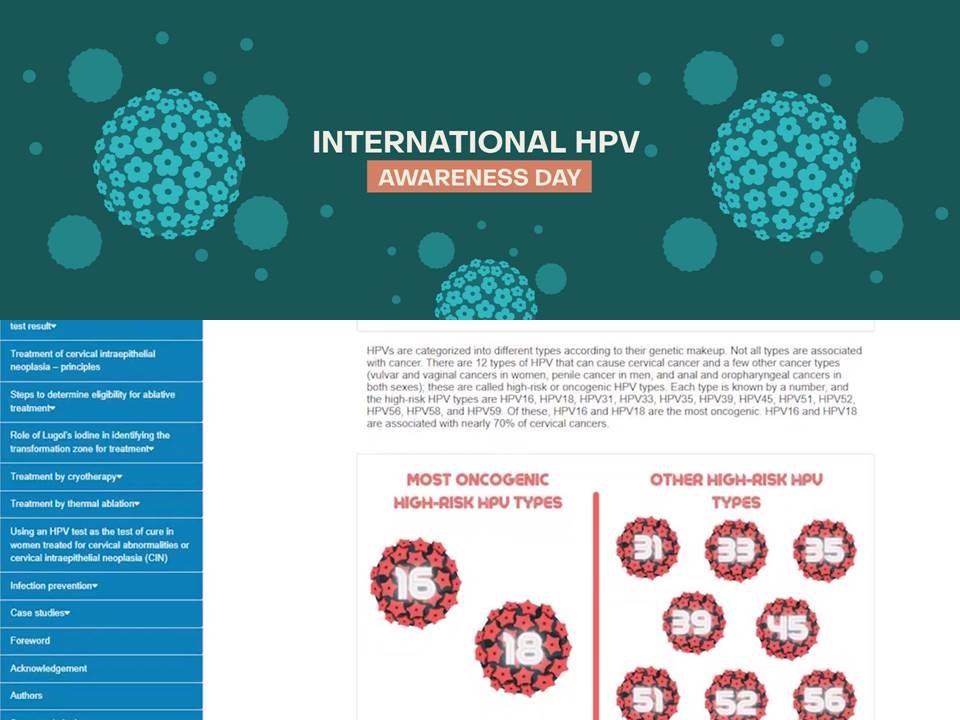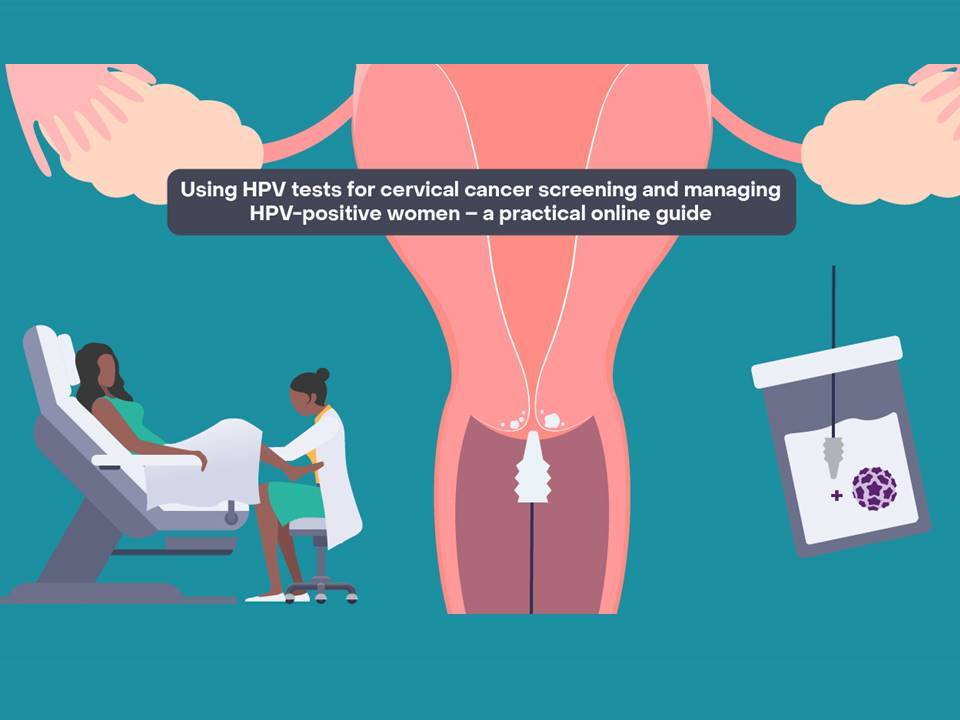Home
The core function of the Screening Group (SCR) at IARC is to provide data on the accuracy, reproducibility, efficacy, benefits, harmful effects, and cost-effectiveness of various early detection interventions for breast, cervical, colorectal, and oral cancers, among others, in reducing deaths and improving patients’ quality of life in various settings. These data can then be used to inform and improve the rational use of health-care resources. The Group’s ultimate objective is to guide the development of public health policies for implementing screening in a variety of health-care settings, in particular in low- and middle-income countries (LMICs).
SCR conducts field studies in LMICs to evaluate various early detection methods for breast, cervical, colorectal, and oral cancer control. These initiatives also address the means by which screening services could be scaled up through local public health services. SCR develops various training resources to catalyse and augment capacity building in close collaboration with national institutions and government health services. Through its research programme, SCR generates scientific evidence to support the development of resource-appropriate early detection policies and health systems for the delivery of effective early services. The Cancer Screening in 5 Continents (CanScreen5) project of the Group aims to collect information on characteristics and performance of cancer screening programmes around the world and disseminate such information for informed decision making in cancer screening programmes. For example, the Group significantly contributed also to the evaluation of the safety and efficacy of less than three doses of the HPV vaccine in protecting against cervical cancer.
Visitors and news
 New publication: CanScreen5: a global data repository for breast, cervical, and colorectal cancer screening programmes27/04/2023The inaugural report of the Cancer Screening in Five Continents (CanScreen5) project – the first initiative of its kind to analyse the organization and implementation of breast, cervical, and colorectal cancer screening programmes worldwide – was published today in the journal Nature Medicine. The report, led by scientists at the International Agency for Research on Cancer (IARC), highlights the substantial variability in the organization and performance of cancer screening across countries, provides recommendations for screening programmes to improve the quality and completeness of data, and identifies best practices that can be shared between programmes. Read the IARC Press Release, and the article |
 New HPV vaccines and fewer doses: promising recent developments towards eliminating cervical cancer21/04/2023The International Agency for Research on Cancer (IARC) has released a new IARC Evidence Summary Brief, titled “Protection from a Single Dose of HPV Vaccine: A major public health impact from IARC studies of vaccine efficacy”. This report highlights promising recent developments, led by scientists from IARC and partners, that are huge steps to accelerate the elimination of cervical cancer as a threat to global public health. This IARC Evidence Summary Brief is the fourth in a series of scientific Evidence Summary Briefs published by IARC to call attention to the findings of evidence-based studies in key aspects of cancer prevention. Read the IARC Press Release, and the IARC Evidence Summary Brief No. 4 |
 New video: IARC launches new HPV atlas to support cervical cancer elimination03/03/2023To mark International Human Papillomavirus (HPV) Awareness Day, Dr Partha Basu of the International Agency for Research on Cancer (IARC) introduces a new IARC online atlas designed to help health professionals use HPV tests for cervical cancer screening and manage HPV-positive women. View the video. |
 New publication: Using HPV tests for cervical cancer screening and managing HPV-positive women – a practical online guide03/03/2023To mark International Human Papillomavirus (HPV) Awareness Day, the International Agency for Research on Cancer (IARC) is launching a new IARC atlas, a practical online guide designed to help health professionals use HPV tests for cervical cancer screening and managing HPV-positive women. View the IARC Press release 329, and view the new new HPV atlas. |
 Video: Care4Afrique, a pilot cervical cancer screening programme03/02/2023Dr Farida Selmouni presents the Care4Afrique project and the published report prepared in collaboration with the Lalla Salma Foundation for Cancer Prevention and Treatment (Morocco). Care4Afrique demonstrates that implementation of cervical cancer screening by visual inspection with acetic acid (VIA) followed by immediate treatment of precancerous lesions with thermal ablation in primary health-care services is feasible in resource-constrained settings. View the report and view the video. |
Scientific papers
| Gomez Rivas J., Leenen R.C.A., Venderbos L.D.F., Helleman J., de la Parra I., Vasilyeva V., Moreno-Sierra J., Basu P., Chandran A., van den Bergh R.C.N., Collen S., Van Poppel H., Roobol M.J., Beyer K., On Behalf Of The Praise-U Consortium. Navigating through the Controversies and Emerging Paradigms in Early Detection of Prostate Cancer: Bridging the Gap from Classic RCTs to Modern Population-Based Pilot Programs. J Pers Med. 2023 Dec 1;13(12):1677. PMID: 38138904 |
| Hall M.T., Simms K.T., Murray J.M., Keane A., Nguyen D.T.N., Caruana M., Lui G., Kelly H., Eckert L.O., Santesso N., de Sanjose S., Swai E.E., Rangaraj A., Owiredu M.N., Gauvreau C., Demke O., Basu P., Arbyn M., Dalal S., Broutet N., Canfell K. Benefits and harms of cervical screening, triage and treatment strategies in women living with HIV. Nat Med. 2023 Dec;29(12):3059-3066. doi: 10.1038/s41591-023-02601-3. PMID: 38087116 |
| Simms K.T., Keane A., Nguyen D.T.N., Caruana M., Hall M.T., Lui G., Gauvreau C., Demke O., Arbyn M., Basu P., Wentzensen N., Lauby-Secretan B., Ilbawi A., Hutubessy R., Almonte M., De Sanjose S., Kelly H., Dalal S., Eckert L.O., Santesso N., Broutet N., Canfell K. Benefits, harms and cost-effectiveness of cervical screening, triage and treatment strategies for women in the general population. Nat Med. 2023 Dec;29(12):3050-3058. PMID: 38087115 |



